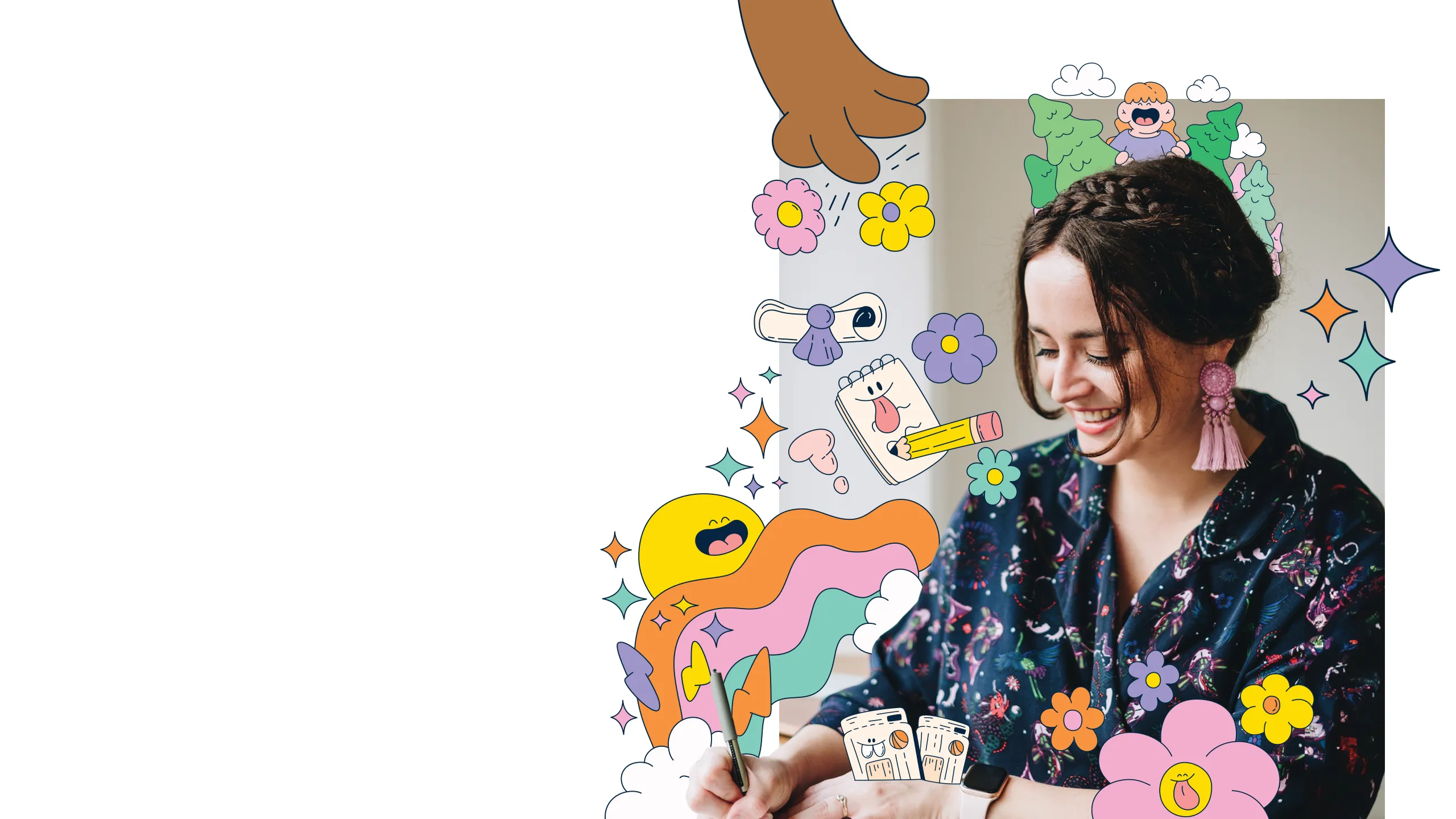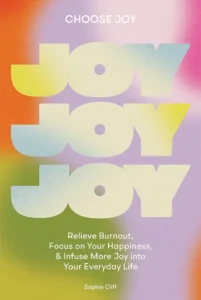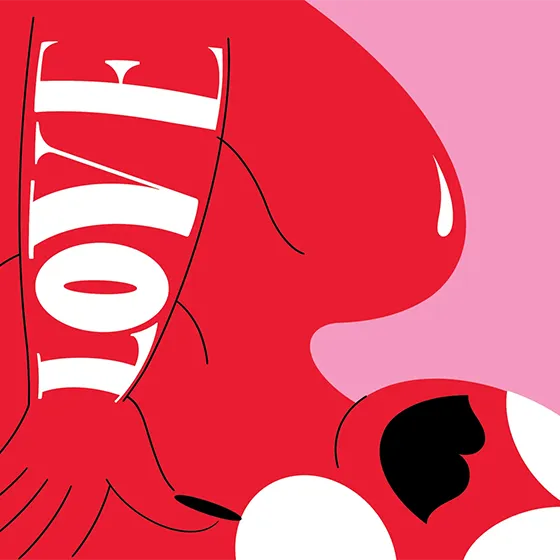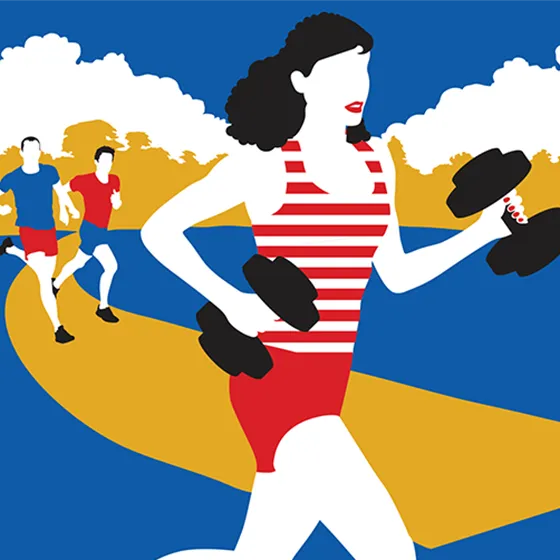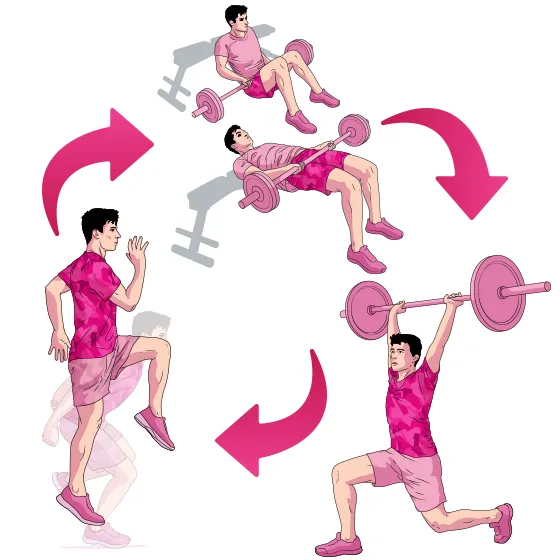Happiness and joy are two different things. Happiness happens to us. It comes and goes based on our circumstances. Joy on the other hand, is a choice purposefully made. It can manifest as a sense of contentment, satisfaction, gladness or peace, and it’s something we can cultivate regardless of our circumstances – feeling sad, grief stricken or anxious doesn’t deny you access to joy. Joy is more of a practice or an attitude than an emotion, and for that reason it can often feel deeper than happiness.
Eight years ago, I experienced a traumatic bereavement. It was only when I experienced a sudden, unexpected loss that I was truly able to see how precious life is. That prompted me to retrain as a positive psychologist and joy coach. I aim to give people the tools to prioritise joy in the here and now – not on some far off future date that none of us are promised.
We care deeply about joy but we’ve been sold the wrong idea. We’re raised with the idea that we’ll be happy ‘when’ – when we achieve a goal, get a promotion or buy our dream home. But research shows that the happiness we actually experience in those moments is often a little less than the happiness we anticipate, while the joy that the small things in life bring us is greater.
Happiness happens to us. Joy is a choice purposefully made
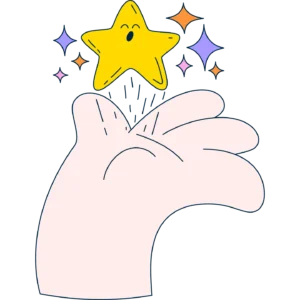
CRUSH THE JOY KILLERS
Experiencing joy improves everything that is important to us – our health and longevity, our relationships and our cognitive functioning. Perhaps most importantly, it can improve resilience and protect against burnout. But it’s very difficult to find the joy if we’re always exhausted.
The word ‘should’ is another joy killer – whenever we do something we feel we should be doing, we are acting on someone else’s idea of what is important or valued. Spotting the ‘shoulds’ can act as a reminder to come back to your own values and desires, and help you avoid the trap of people pleasing.
Research tells us that the two most important ingredients for a happy life are connection and gratitude, so focus on these areas. First, pour as much time and energy into your relationships as you can – we often say that our loved ones are our biggest priority, but is this reflected in the way we spend our time and energy?
Next, focus more on what is good in your life than what is bad. Gratitude isn’t about pretending everything is perfect – it’s about noticing what is good and enjoying it. The more gratitude you feel, the less you’ll find yourself comparing or falling into a negativity spiral.
REWRITE YOUR STORY
If you’re going to tell yourself a story, you might as well make it a good one. We often find ourselves worrying about something that hasn’t happened, imagining how things might play out. Why not challenge yourself to imagine a more positive outcome? This always helps me when I’m feeling stuck.
Most importantly, allow yourself to do things that feel good. Sounds obvious, yet we prize hard work and struggle over enjoyment: we work late, delay booking our dream trip or force ourselves to finish a book we aren’t enjoying. Giving myself permission to do more of the stuff that brought me joy changed my life completely.
Finally, pause. Look back on past achievements. Most of us aren’t great at celebrating our own successes but, if we don’t reflect, we don’t internalise our wins and our self-esteem doesn’t improve. One of my favourite questions to ask is, “What has changed for the better since this time last year?” You might be surprised to see just how much positive change you have brought about.










